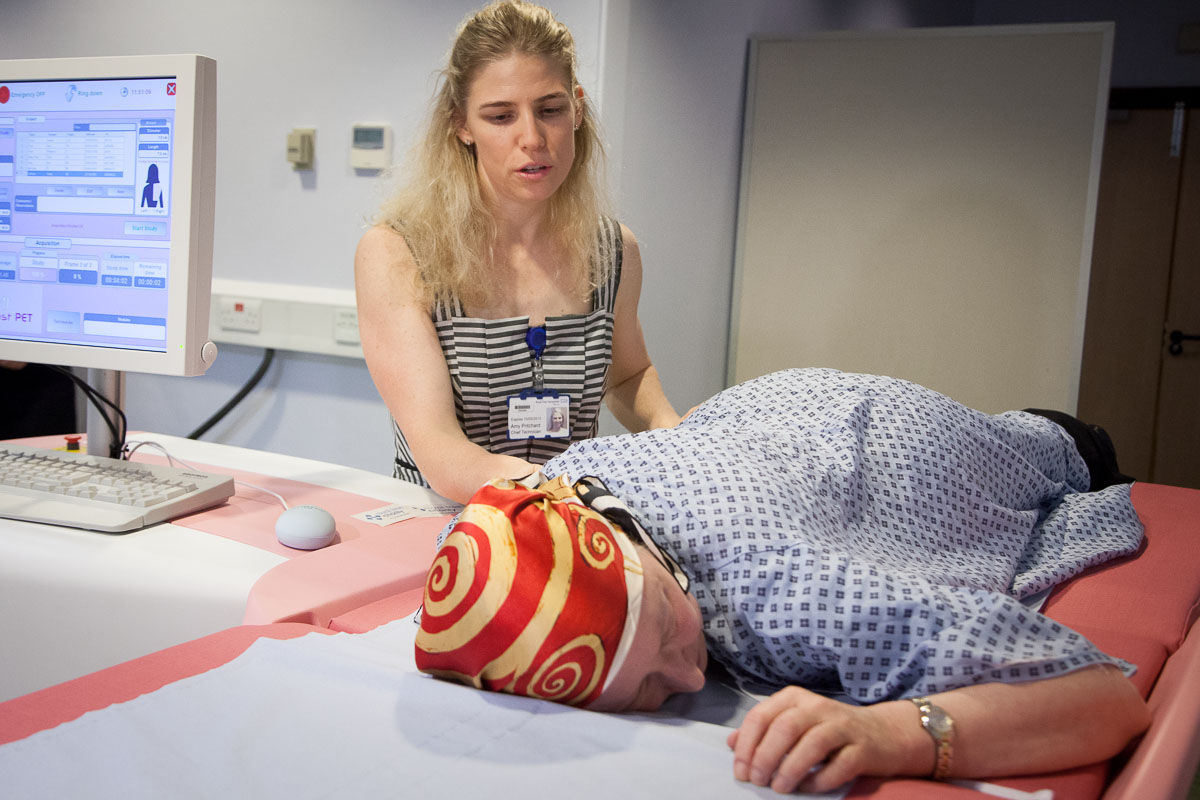Researchers at the Royal Free London are looking into whether state-of-the-art scanning technology could be used to more accurately identify areas of cancer in the breast and potentially spare patients from undergoing invasive biopsy procedures.
The Royal Free Hospital was the first in the country to install a 3D dedicated breast positron emission tomography (PET) scanner, which can spot very small tumours.
PET scanners work by scanning the breasts of patients who have been injected with mildly radioactive glucose. Cancer cells use more sugar than normal, so the affected area shows up on the image.
Now clinicians from the trust’s nuclear medicine, radiology and surgical departments have launched a trial looking into whether the technology could be used to accurately identify areas of breast cancer in patients who already have a diagnosis but whose MRI scan is showing inconclusive findings.
Breast MRI is currently considered the best method to locally stage breast cancer in patients who have recently received a diagnosis. However MRI is also known to have a reported false positive rate of up to 57%. This can lead to further ultrasound scans and biopsies which provoke anxiety in patients and are expensive to perform.
Researchers are hoping to detect these false positives earlier by introducing a PET scan after the MRI, meaning that fewer patients would need to undergo biopsies.
The team is in the process of recruiting 20 patients who have undergone an MRI and now require a ‘second look’ ultrasound. These patients will undergo a dedicated breast PET scan between the two procedures to determine the sensitivity and specificity of the ground-breaking technology.
Thomas Wagner, consultant in nuclear medicine and lead researcher, said: “After a patient receives a breast cancer diagnosis, the next step is to check the size and spread of the cancer in order to help decide on the best course of treatment. PET scans could be an effective way of gathering this information and prove to be complementary to MRI. We are hoping a dedicated breast PET will allow some patients to be spared the further stress of a biopsy.”
ENDS
Image: A patient undergoing a breast PET scan
Notes to editors
Media contacts: daniel.obrien1@nhs.net or call 020 7317 7740
About the Royal Free London NHS Foundation Trust
The Royal Free began as a pioneering organisation and continues to play a leading role in the care of patients. Our mission is to provide world class expertise and local care. In the 21st century, the Royal Free London continues to lead improvements in healthcare.
The Royal Free London attracts patients from across the country and beyond to its specialist services in liver and kidney transplantation, haemophilia, renal care, HIV, infectious diseases, plastic surgery, immunology, Parkinson's disease, vascular surgery, cardiology, amyloidosis and scleroderma and we are a member of the academic health science partnership UCLPartners.
In July 2014 Barnet Hospital and Chase Farm Hospital became part of the Royal Free London. Read 'A bigger trust, a better future'.
 Translate
Translate
